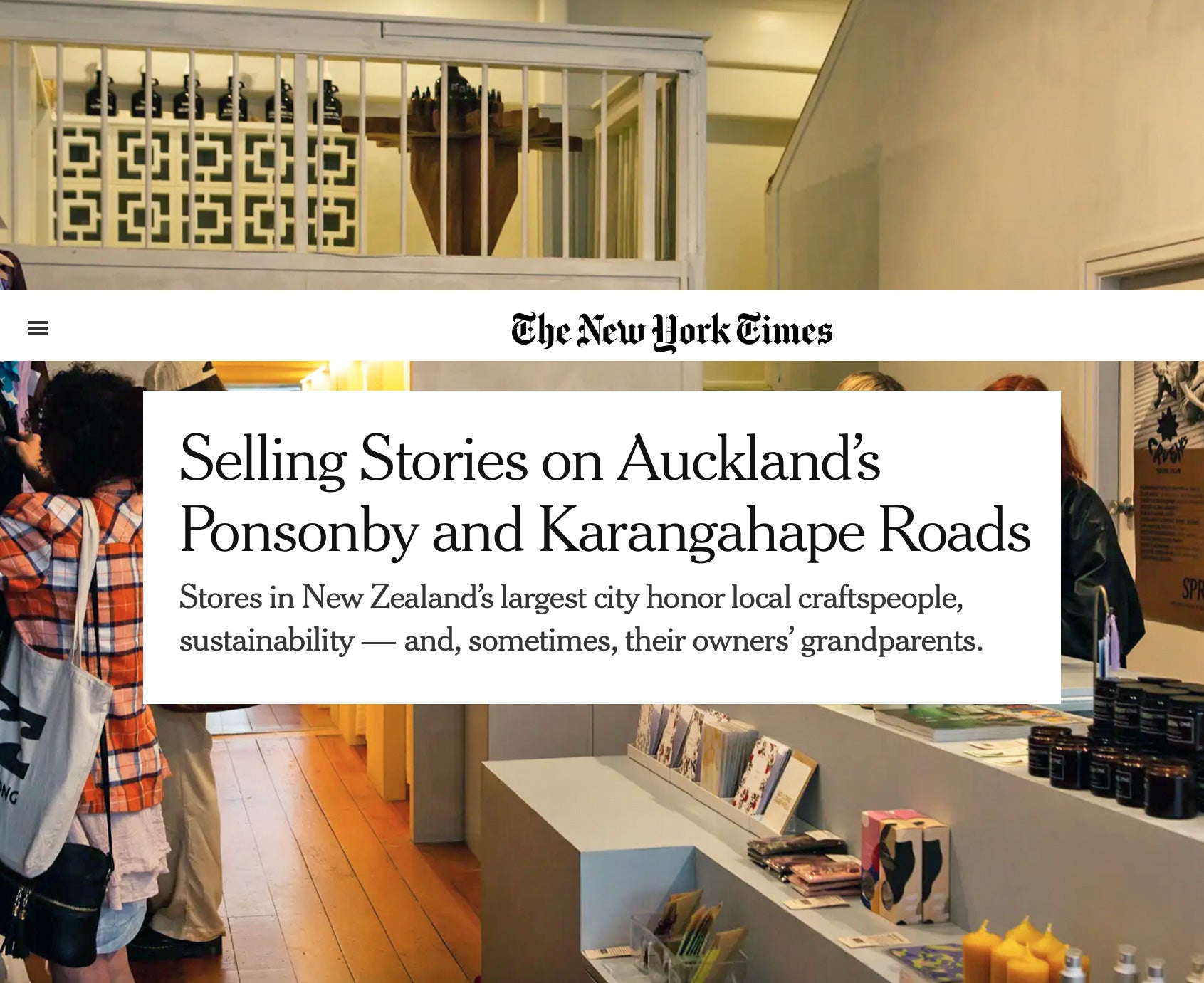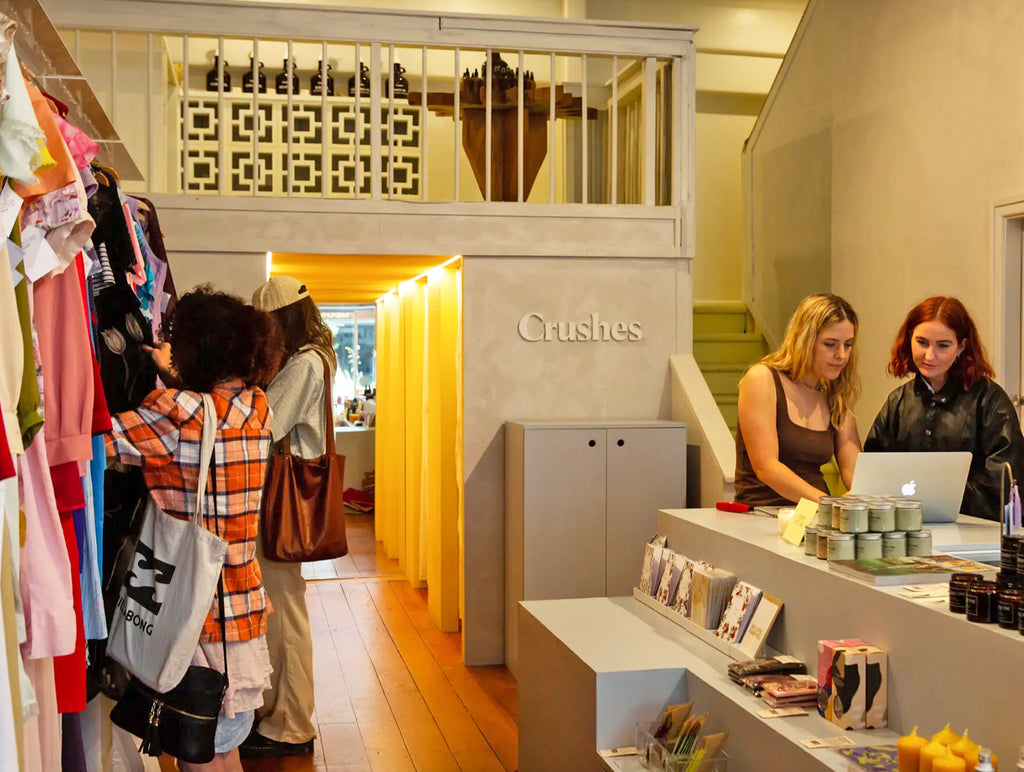
New York Times November 2022
We were featured in The New York Times! Without linking the full article and breaking paywall/copyrights, this is what they said about Crushes: Rose Hope, owner of Crushes, left, and Genevieve Burke at the New Zealand-made and vintage store on Karangahape Road.
Rose Hope, owner of Crushes, left, and Genevieve Burke at the New Zealand-made and vintage store on Karangahape Road.
Credit: Ruth McDowall for The New York Times
-
Crushes, an accessible home wares and clothing boutique on the street, is trying to change the conversation on how fashion-forward New Zealanders consume.
“We’re not really in the business of selling things,” said Rose Hope, who co-founded the business with Sarah Firmston in 2011, in part to connect craftspeople from around the country with potential customers. “We’re in the business of selling stories, you know, or telling stories.”
A pen made with native rimu wood, for instance, costs 45 New Zealand dollars, because it took its 84-year-old maker, Ms. Hope’s grandfather, who died this year, a whole day to make. Multicolored glass tumblers made by Keith Grinter, a glass blower in the northern town of Whangarei, sits heavy and solid in the hand. “Sometimes I drop mine at home and they don’t break, because it is quality glass,” said Ms. Hope. “I’m not saying anyone should drop them — but that tangible, physical sensation of interacting with these special items is one of my absolute favorite things.”
In a nod to sustainability, the shop’s vintage clothing supply comes only from within New Zealand, even while it might be easier — and cheaper — to ship in 20-pound bags from overseas. “We’re not too interested in old clothes for old clothes’ sake,” Ms. Hope said. “We want to change hearts and minds about the way that we consume fashion.”
...
In any of these shops, the items on sale crackle with narrative. Ms Crabb’s bias cut dresses were first designed to accommodate her growing pregnancy. At the Poi Room, a pounamu pendant carved into the shape of an adz, a thick, sharpened blade, (about $200) by Charlie Marsh, a Maori carver from Dannevirke, is said to give its wearer strength, courage and determination. And at Crushes, a soothing eczema cream (about $25) is produced by three Maori sisters, made with foraged mamaku koru, a native fern.
Ultimately, it all comes down to the people, said Ms. Hope. “Instead of just a price tag,” she said, “we explain who makes it and why they’re making it — a neighbor or an auntie or someone in our community — and just how special that is, in a world of mass manufacturing.”
